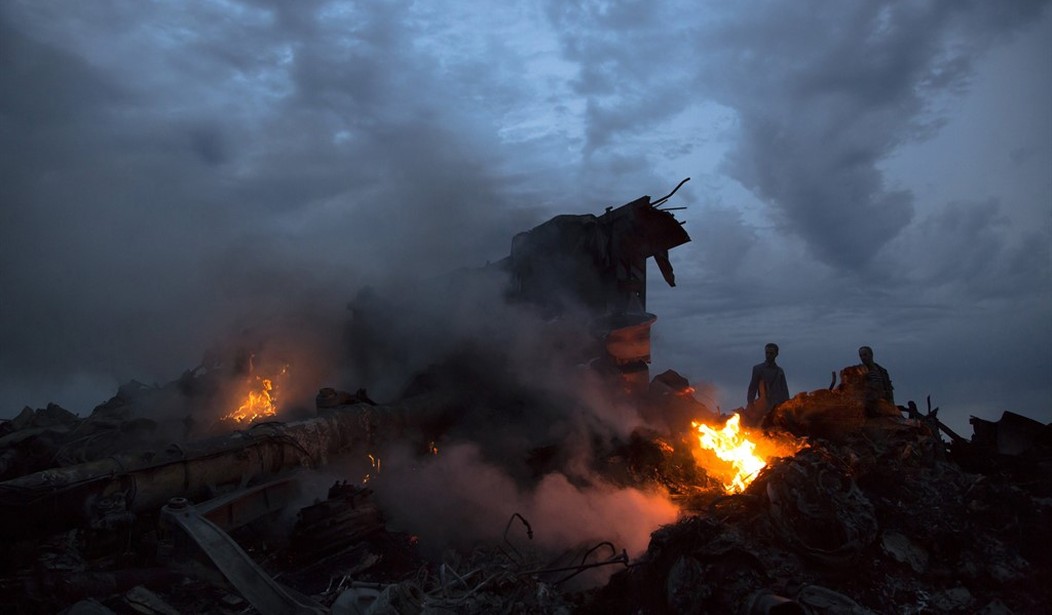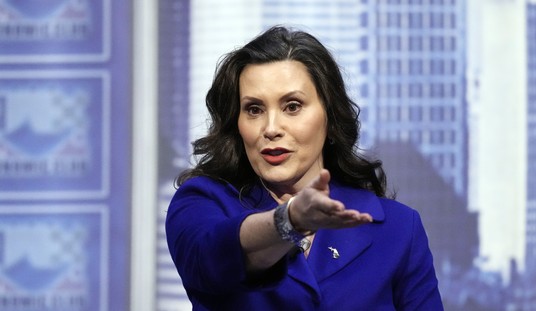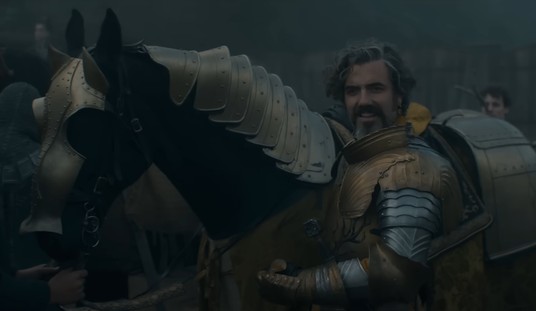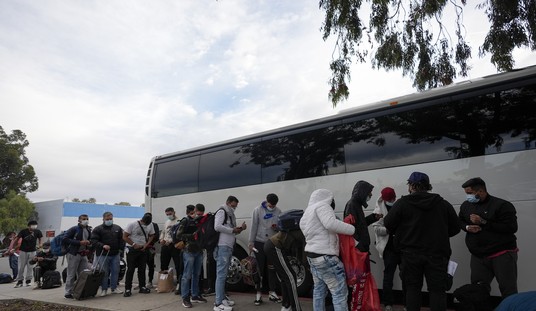Two Russian nationals and a Ukrainian were found guilty and sentenced to life in prison by a Dutch court on Thursday in the deadly shootdown of Malayasia Air Flight 17 (MH-17) over eastern Ukraine on July 17, 2014. The shootdown took place as the deadly eight-year Russian instigated and supported Donbas separatist movement that introduced us to the terms “gray zone,” and “little green men” got underway. The defendants, two Russians — Igor Girkin (aka “Strelkov,” see Putin’s Potemkin rebellion in Ukraine), a former colonel in Russia’s FSB who is still in the leadership of the Donetsk People’s Republic militia, and Sergei Dubinsky, a former Russian GRU officer — and Leonid Kharchenko, a Ukrainian who led a DPR militia unit under Russian command, were found guilty on 298 counts of murder. One defendant, former GRU officer Oleg Pulatov, was acquitted.
True to form, Russia denied any involvement in the shootdown (Malaysian Boeing 777 apparently shot down in eastern Ukraine) — at one point claiming the CIA had planted the wreckage and bodies — and suffered few repercussions (Malaysia Air MH-17: Vladimir Putin gets away with murder), in effect, teaching Vladimir Putin that he could get away with the most outrageous actions.
These videos show how the plane was shot down and how the perpetrators were revealed.
The Netherlands took the lead on the investigation and trial under a law that gives Dutch courts jurisdiction over crimes committed against Dutch citizens while they are abroad. This is how Just Security described the legal issues.
Under international law, combatant immunity protects military forces from being prosecuted in foreign domestic courts for participating in hostilities. A plausible scenario of what actually happened on that day in July 2014 is that the pro-Russian fighters tried to down a Ukrainian fighter plane and mistakenly hit MH17. In an armed conflict, combatants are allowed to attack military targets as long as they do so in accordance with the rules of international humanitarian law (IHL). And there is some room for a defense of mistake. Combatants are immune from prosecution in foreign domestic courts unless they commit war crimes.
Notwithstanding whether or not a war crime was committed, the Dutch prosecutors argued that, to be recognized as a combatant and thus enjoy combatant privileges such as immunity from foreign prosecution, a person needs to be part of the armed forces of a party to an international armed conflict (Russia). However, the suspects deny this and presented themselves as volunteers in the conflict rather than part of the Russian armed forces. Moreover, Russia denied any involvement in the armed conflict and denied that the suspects or the DPR and the neighboring Luhansk People’s Republic (LPR) were under Russian command. Furthermore, the prosecution argued that the DPR and LPR themselves did not have a properly functioning internal disciplinary system that enforces compliance with the rules of armed conflict, as demonstrated by the commission of many war crimes in the area at the time, such as executions, torture, and destruction and appropriation of property.
The prosecution therefore posited as follows: Even though the alleged crimes were committed in eastern Ukraine, Dutch criminal law applies when crimes are committed against Dutch nationals on the basis of the passive personality principle. Combined with that, if the suspects were not combatants in accordance with the rules of armed conflict, they do not benefit from combatant immunity and can be prosecuted in the Dutch criminal court.
…
The prosecution has charged the suspects with two crimes: downing a plane (Article 168 Dutch Criminal Code, DCC) and murder (Article 289 DCC). According the prosecution, it did not matter whether the suspects intended to shoot down a Ukrainian military plane and accidentally downed a passenger flight. The prosecution’s line of argumentation is that, because they did not have the right that combatants have to shoot at military targets, any flight that would be downed and any person they would kill as a consequence of being responsible for the launching of the Buk would meet the requirements of these charges.
The prosecution has requested the maximum sentence for both offenses — life in prison. In the event the required condition of premeditation is not proven for the murder charges, prosecutors subsidiarily indicted the suspects on manslaughter (Article 287 DCC). The indictment also accuses each suspect of perpetrating these crimes through different modes of participation: functional (co)perpetration, co-perpetration, incitement, and complicity.
Article 168 DCC applies to someone who “intentionally and unlawfully” causes the crash of an airplane (or boat or vehicle) that risks someone’s life. The court needs to decide whether prosecutors have proven beyond a reasonable doubt that the conduct of the suspects caused the crash of MH17 and that they did so intentionally. The suspects are not alleged to have launched the Buk, so the question is whether they had the power of decision about whether the missile would be launched, in the sense that they could have prevented it from occurring, and did they have the knowledge of how the missile would be used and failed to prevent it? Prosecutors held that the four suspects were functional (co)perpetrators in the downing of MH17, in an argument that could be compared somewhat to international criminal law’s command responsibility.
The prosecution moreover argued that the suspects also were co-perpetrators. On this, the court needs to decide whether the suspects’ conduct, which according to the prosecution constituted “conscious and close cooperation” to get the Buk to a strategic position to shoot down a plane, caused the crash. Both functional (co)perpetration and co-perpetration are forms to connect the suspects to the launching of the Buk. The prosecution has invoked both, hoping that the court agrees that the criteria of at least one of them will be found satisfied. However, the defense argued that these standards that have been developed in Dutch case law are not met and that their client should therefore be acquitted.
On the murder charge, Article 289 DCC defines the crime as applying to someone who takes someone’s life “intentionally” and “with premeditation.” If premeditation cannot be proven but intent is established, the suspects can be convicted for manslaughter under Article 287 DCC.
The minimum threshold to prove intent for both murder and manslaughter is dolus eventualis, which means that it needs to be proven beyond a reasonable doubt that the accused knew or should have known that there was a “considerable chance” that what they did would result in the death of people, and that they “consciously accepted that risk” and still acted “willingly.” Again, did they do so as functional (co)perpetrators, meaning can it be proven that each suspect was a functional perpetrator in the sense of having the power of decision whether the acts would occur (the launch of the Buk), knew that a Buk would be used, and failed to try to prevent it, and therefore accepted the consequences? And/or were they co-perpetrators: committing the crime in conscious and close cooperation, with each co-perpetrator having a sufficiently substantial role?
For the conviction to rise to murder, the court needs to decide whether premeditation is proven, namely that each suspect had the opportunity to consider his actions before taking someone’s life and not acted on an impulse. In other words, were these suspects able to consider requesting and organizing the Buk missile and could they have considered not launching it? Prosecutors argued that, indeed, the suspects had ample time to reconsider during the many hours that it took to the transport the Buk.
While there is little chance that any of the defendants will serve prison time, a few interesting things came out of the trial.
First, based on a mountain of evidence, Russia was officially labeled as the sponsor and leader of the “rebellion” in Donbas in 2014. This is important as it formalizes what everyone has known but shied away from saying. Russia was shown to have armed the Donbas insurrectionists and provided leaders for key positions.
Second, the convicted men’s claim to “combatant immunity” was disallowed because they were not lawful combatants. That is, the Donbas insurrectionists did not have a clearly defined chain of command, and they did not have an internal disciplinary system or adhere to the law of land warfare.
The latter finding opens the gates for the legal prosecution of members of the LPR/DPR for actions before Russia’s February 24 invasion and taking official command of those militias.
Hopefully, this will be a break from the West’s coddling of Russian terrorism and treating even the most outrageous acts as something that we expect the Russians to do and passively accept.













